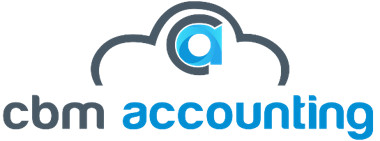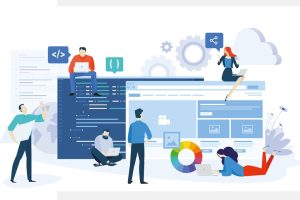[lwptoc]
Running a restaurant in the UK comes with unique accounting and tax challenges. Managing cash flow, VAT obligations, payroll, and allowable expenses is essential to keeping your business profitable and compliant. Here are key accounting and tax tips to help restaurant owners stay on top of their financial responsibilities.
Accurate Record Keeping is Key:
- Point of Sale (POS) Integration: Integrate your POS system with your accounting software to automate sales tracking and reduce errors.
- Inventory Management: Implement a robust inventory management system to track food and beverage costs, minimize waste, and identify potential discrepancies.
- Receipts and Invoices: Keep meticulous records of all receipts and invoices, both for purchases and sales.
- Staff Records: Maintain accurate records of employee hours, wages, and tips.
Managing VAT Effectively:
- VAT Rates: Understand the different VAT rates applicable to your restaurant’s products and services.
- Standard rate: Applies to most food and drink sold for consumption on the premises.
- Reduced rate: Some food and drink may be subject to a reduced rate.
- Zero rate: Some takeaway food items may be zero-rated.
- Input VAT Recovery: Reclaim VAT paid on eligible business purchases, such as equipment, supplies, and utilities.
- VAT Returns: Submit accurate and timely VAT returns to HMRC.
- Making Tax Digital (MTD): Ensure you comply with MTD for VAT requirements by using compatible accounting software.
Controlling Food and Beverage Costs:
- Menu Engineering: Analyze your menu to identify high-profit items and eliminate low-profit ones.
- Supplier Negotiations: Negotiate favorable prices and payment terms with your suppliers.
- Portion Control: Implement strict portion control measures to minimize waste and ensure consistent serving sizes.
- Waste Management: Track and analyze food waste to identify areas for improvement.
Managing Staff Costs:
- Payroll Management: Use payroll software to streamline payroll processing and ensure compliance with employment regulations.
- Tip Management: Implement a transparent and fair tip distribution system.
- Staff Training: Invest in staff training to improve efficiency and customer service.
Utilizing Capital Allowances:
- Equipment Purchases: Claim Capital Allowances on eligible equipment purchases, such as kitchen appliances and furniture.
- Fixtures and Fittings: Claim Capital Allowances on fixtures and fittings, such as lighting and flooring.
Understanding Business Rates:
- Rateable Value: Understand how your restaurant’s rateable value is determined.
- Business Rates Relief: Check if you’re eligible for any business rates relief schemes.
Monitor Cash Flow Closely
Cash flow is vital for restaurant operations. To maintain financial stability:
- Forecast income and expenses.
- Keep a buffer for unexpected costs.
- Ensure timely payments to suppliers and landlords.
- Reduce waste and control portion sizes to manage costs effectively.
Stay Up to Date with Tax Deadlines
Missing tax deadlines can lead to penalties. Key dates include:
- Corporation Tax Payment – Due 9 months and 1 day after the end of the financial year.
- VAT Returns – Usually due quarterly.
- PAYE & NICs – Monthly payroll submissions.
- Self-Assessment Tax Return – Due 31st January (for sole traders or partnerships).
Technology for Restaurant Finances:
- Accounting Software: Use cloud-based accounting software to automate tasks and gain real-time financial insights.
- Inventory Management Software: Implement inventory management software to track stock levels and minimize waste.
- POS Systems: Utilize POS systems to streamline sales transactions and generate reports.
- Online Payment Systems: Offer online payment options to improve customer convenience.
Dealing with Tips and Gratuities:
- Tronc Systems: Consider using a tronc system to manage tip distribution fairly and efficiently.
- Tax Implications: Understand the tax implications of tips and gratuities for both employees and employers.
Regular Financial Reviews:
- Monthly Reviews: Conduct monthly reviews of your financial statements to identify trends and areas for improvement.
- Annual Reviews: Conduct annual reviews to assess your overall financial performance and plan for the future.
Tax Planning Tips:
- Allowable Expenses: Ensure you claim all allowable business expenses, such as rent, utilities, and marketing costs.
- Corporation Tax: If you operate as a limited company, understand your Corporation Tax obligations.
- Self-Assessment: If you’re a sole trader or in a partnership, understand your Self-Assessment obligations.
- Seek Professional Advice: Consult with an accountant or tax advisor specializing in the restaurant industry.
By implementing these accounting and tax tips, you can improve your restaurant’s financial management, reduce your tax liability, and increase your profitability. Remember to seek professional advice when needed, and stay up-to-date with changes in tax laws and regulations.

